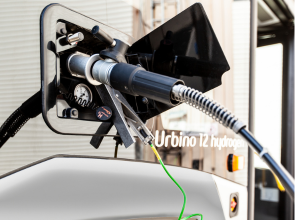Volkswagen CEO thinks the world is wrong about green hydrogen

Herbert Diess, the global chief executive officer (CEO) of the Volkswagen Group, has asked governments around the world to abandon their support for hydrogen.
The hydrogen economy drive has recently seen renewed support worldwide, and multi-billion spending initiatives have been announced to develop the hydrogen economy around the globe. Germany, the home to Volkswagen, is one of the leading force behind driving the hydrogen economy.
However, Mr Diess thinks otherwise.“It’s time for politicians to accept science: Green hydrogen is needed for steel, chemical, aero,… and should not end up in cars. Far too expensive, inefficient, slow and difficult to rollout and transport. After all: no hydrogen cars in sight,” he wrote on his Twitter account.
Herbert Diess, announcement came on Thursday in response to the European Automobile Manufacturers Association (ACEA), the leading lobbying and standards group of the automobile industry in the EU, calling for one million EV chargers to be installed in the EU by 2024. Further to this, ACEA, in its Thursday press release, proposed, “The law should also set a target of around 1,000 hydrogen stations by 2029.”
Mr Diess pledged his support for ACEA one million EVs charging stations target and said that charging stations target should reach 3 million by 2029. He said, “Carmakers, consumer groups & environmentalists agree: E-Mobility is the way forward to fight climate change now.”
The Volkswagen Group has increased its efforts for developing electric powertrains since its emissions scandal (also known as Dieselgate or Emissionsgate) in 2015.
Volkswagen now offers the e-up! and the e-Golf as fully electric models. The ID.3 is its first next-generation electric cars, while the upcoming ID.4 combines the flexibility of an SUV will be available from this year.
However, despite its electric vehicle portfolio, it has missed its strict EU emissions targets in 2020 and will pay more than € 100 million (US$ 121 million) in fines.
Ralf Brandstatter, the company brand chief, last year said that Volkswagen would continue to offer combustion engines models for “a long time.” This appeared contradicting Diess’s earlier statement that the last combustion vehicle will be developed in 2026 with launching in the early 2030s. Last year Volkswagen claimed it can overtake Tesla within three years which has yet to be seen.
Toyota, the main rival to Volkswagen, has long maintained its hydrogen fuel cell technology. It has recently launched its second-generation Toyota Mirai, a hydrogen fuel cell electric vehicle model, in Europe and North America. The Hyundai Motor Group has also invested in hydrogen-powered vehicles.
